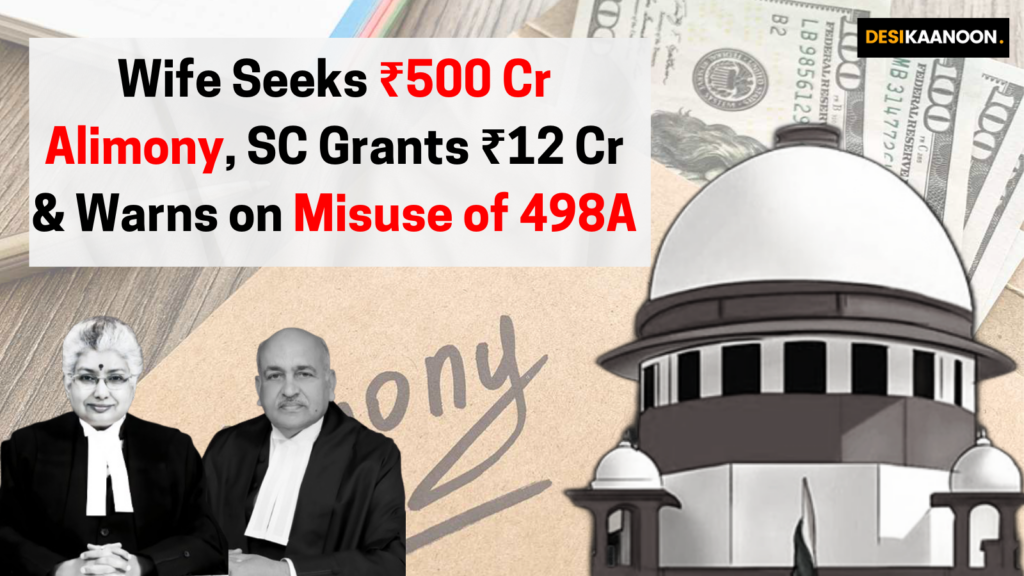Alok Singh
On December 19, the Supreme Court of India passed a judgment in Rinku Baheti v. Sandesh Sharda addressing key issues like irretrievable breakdown of marriage, transfer petitions, and the equitable use of Article 142 powers. The verdict was delivered by the Division-Bench comprising Justices B.V. Nagarathna and Pankaj Mithal.
The case highlights critical facets of matrimonial disputes in India, including misuse of legal provisions and balancing equity in alimony awards.
The petitioner (wife) and respondent (husband) were married on 31 July 2021 in Pune. It was a second marriage for both parties. The discord arose shortly after marriage over the husband’s responsibilities toward his children, ex-wife, and ailing father. The marriage lasted only a few months and was ended with allegations, criminal complaints, and multiple legal proceedings.
The husband filed three divorce petitions, of which the first two were withdrawn or dismissed. The third petition, filed under Section 13(1)(ia) of the Hindu Marriage Act, was the subject of the transfer petition. On the other hand, the wife lodged criminal complaints against the respondent and his family under IPC Sections 498A (cruelty), 376 (rape), 377 (unnatural offences), and the IT Act, among others.
Further, the wife sought a transfer of the divorce petition from Bhopal to Pune, mentioning convenience and safety; and the permanent alimony of Rs. 500 crores. Whereas, the husband requested the dissolution of the marriage under Article 142, citing irretrievable breakdown.
The court emphasized that Article 142 empowers the Court to dissolve marriages when reconciliation is impossible. By relying on the Constitution Bench judgment in Shilpa Sailesh v. Varun Sreenivasan, which clarified the use of extraordinary powers in cases of marital discord, the court concluded that forcing the parties to remain married would cause undue hardship and stress.
The Supreme Court dissolved the marriage, citing irretrievable breakdown, and directed the respondent to pay Rs. 12 crores as alimony, exemplifying the court’s role as an equitable problem-solver, balancing justice with pragmatism.
Case Title: Rinku Baheti v. Sandesh Sharda
Citation: 2024 INSC 1014
Bench: Justices B.V. Nagarathna and Pankaj Mithal.

